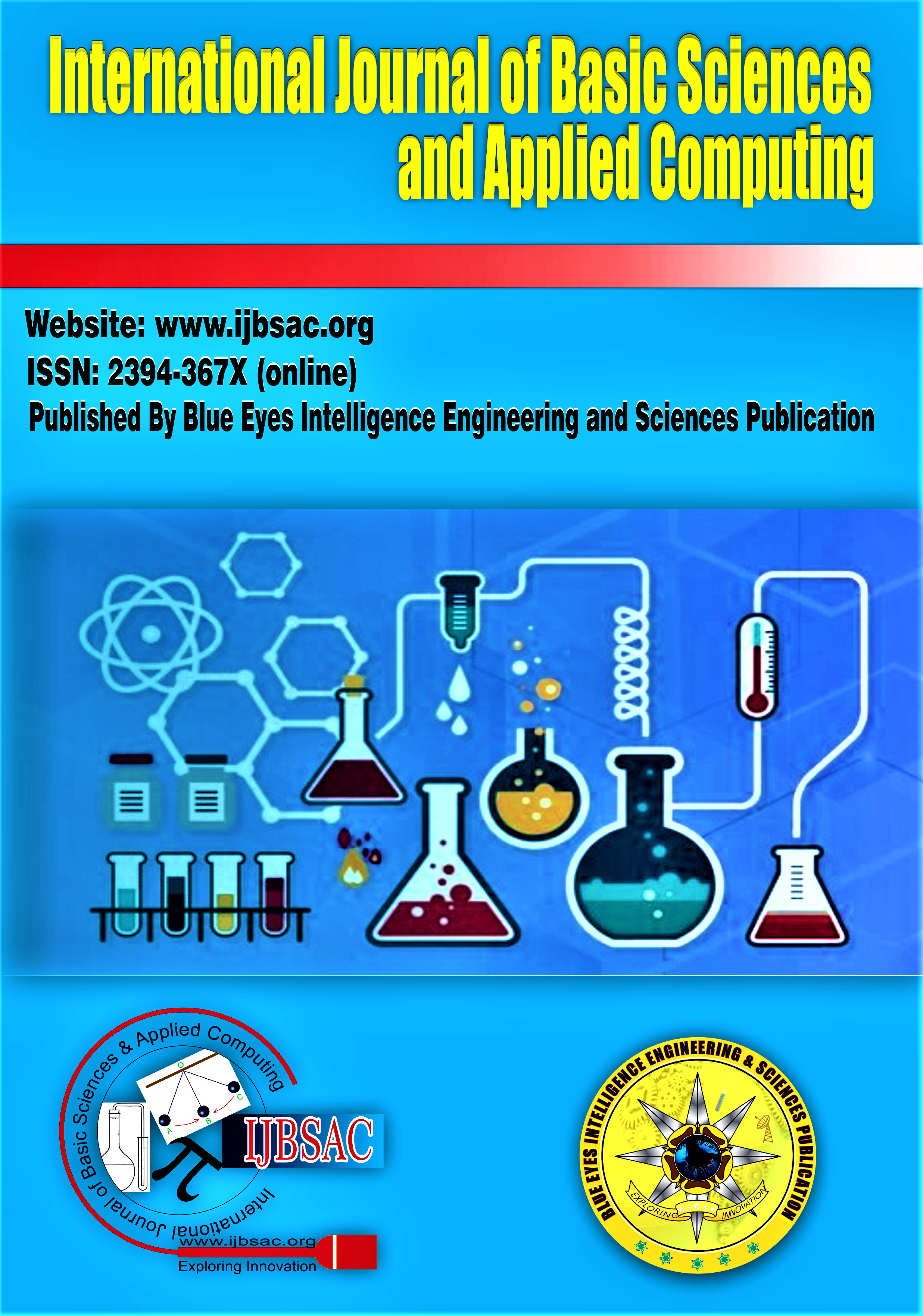Consistency and Convergence Analysis of an F(x,y) Functionally Derived Explicit Fifth-Stage Fourth-Order Runge-Kutta Method
Main Article Content
Abstract
The purpose of this paper is to analyze the consistency and convergence of an explicit fifth-stage fourth-order Runge-Kutta method derived using f(x,y) functional derivatives. The analysis revealed that the method is consistent and convergent. The implementation of this method on initial-value problems was done in a previous paper, and it revealed that the method compared favorably well with the existing classical fourth stage fourth order explicit Runge Kutta method.
Downloads
Article Details

This work is licensed under a Creative Commons Attribution-NonCommercial-NoDerivatives 4.0 International License.
How to Cite
References
G.U. Agbeboh; “On the Stability Analysis of a Geometric 4th order Runge–Kutta Formula”.(Mathematical Theory and Modeling ISSN
2224 – 5804 (Paper) ISSN 2225 – 0522 (Online) Vol. 3, (4)) www.iiste.org.the international institute for science, technology, and education, (IISTE) (2013).
G.U. Agbeboh and M. Ehiemua. Modified Kutta’s Algorithm, JNAMP, Vol. 28(1), (2014) 103 – 114.
G.U. Agbeboh, and A.C. Esekhaigbe, “On The Component Analysis And Transformation Of An Explicit Fourth-Stage Fourth-Order Runge-Kutta Methods”, Journal Of Natural Sciences Research (WWW.IISTE.ORG), ISSN 2224-3186 (paper), ISSN 2225-0921 (online), Vol. 5, No. 20, (2015).
Agbeboh, G.U. “Comparison of some one – step integrators for solving singular initial value problems”, Ph. D thesis, A.A.U., Ekpoma (2006).
H. C Thomas, E. L. Charles, L. R. Ronald and S. Clifford, , “Representing Rooted Trees,” MIT Press and Mc Graw-Hill, ISBN 0-262-03293-7, (2001) 214-217.
A. Turker, “Applied Combinatorics” Wiley, New York (1980).
P. J. Van der Houwen and B. P. Sommeijer, “Explicit multi-frequency symmetric extended RKN integrators for solving multi- frequency and multi-dimensional oscillatory reversible systems”, Calco (2014).
P. J. Van der Houwen, and B. P. Sommeijer, “Runge-Kutta projection methods with low dispersion and dissipation errors”, Advances in computational methods, (2015) 41: 231-251. https://doi.org/10.1007/s10444-014-9355-2
W. William., “General linear methods with inherent Runge-Kutta stability”, A thesis submitted for the degree of doctor of philosophy of the University of Auckland (2002).
D.G. Yakubu; “Uniform Accurate Order Five Radau –Runge-Kutta Collocation Methods” J. Math. Assoc. Niger. 37(2) (2010) 75-94.
Bhavsar, S., Khairnar, S., Nagarkar, P., Raina, S., & Dumbare, Prof. A. (2020). On Time Document Retrieval using Speech Conversation and Diverse Keyword Clustering During Presentations. In International Journal of Recent Technology and Engineering (IJRTE) (Vol. 9, Issue 3, pp. 529–535). https://doi.org/10.35940/ijrte.c4544.099320
Biswas, G. G., & Phate, Dr. M. R. (2022). Experimentation Analysis of Noise Reduction in Motorbike Silencer. In International Journal of Inventive Engineering and Sciences (Vol. 9, Issue 6, pp. 1–5). https://doi.org/10.35940/ijies.f1056.069622
Aliyi, K., & Muleta, H. (2021). Numerical Method of the Line for Solving One Dimensional Initial- Boundary Singularly Perturbed Burger Equation. In Indian Journal of Advanced Mathematics (Vol. 1, Issue 2, pp. 4–14). https://doi.org/10.54105/ijam.b1103.101221
Reddy, Dr. P. V. R. R., Reddy, Dr. G., Chandramohan, Rao, Dr. B., & Laxmaiah, G. (2020). Effect of Various Parameters on the Bead Geometry and Flexural Strength of MIG Welded Joint. In International Journal of Innovative Technology and Exploring Engineering (Vol. 9, Issue 3, pp. 555–559). https://doi.org/10.35940/ijitee.c8098.019320
L, Dr. Priya., K, Poornimathi., & Kumar, Dr. P. (2023). Enhancing Occlusion Handling in Real-Time Tracking Systems through Geometric Mapping and 3D Reconstruction Validation. In International Journal of Engineering and Advanced Technology (Vol. 12, Issue 6, pp. 7–13). https://doi.org/10.35940/ijeat.f4259.0812623





